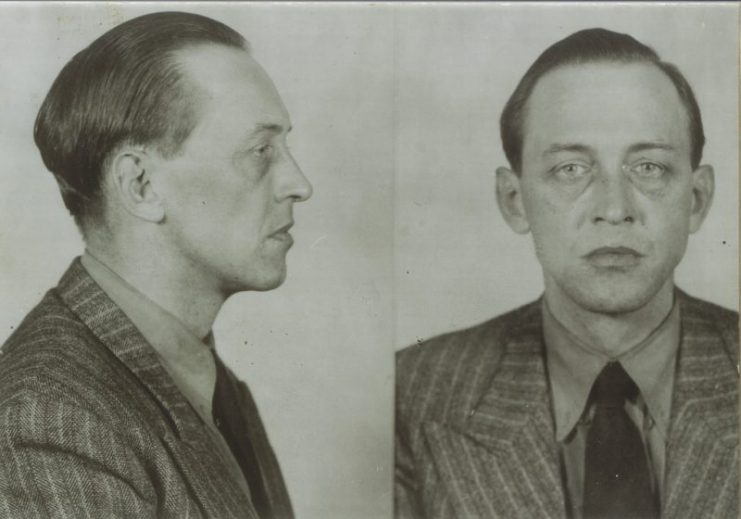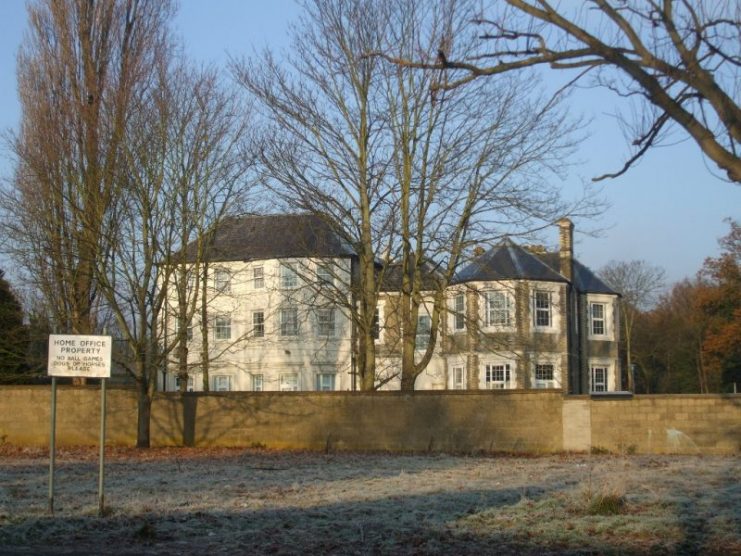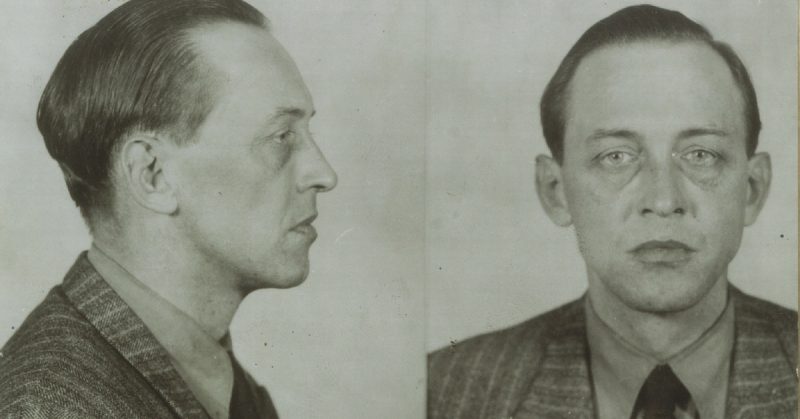The Royal Canadian Mounted Police had had little experience with counter-espionage in 1942 when they captured a German spy named Werner von Janowski. The Abwehr agent disembarked from a U-Boat four miles from New Carlisle, Quebec. He had been sent to find out if the people of Canada were on the verge of revolt, as his superiors believed due to pre-war information on Canadian Nazi sympathizers.
It was far-fetched, but the German Military Intelligence decided to discover if it was true. Before the war, Quebec had developed several fascist-leaning organizations under the leadership of a Montreal-based journalist, Adrien Arcand.
Arcand was dubbed the Canadian Fuhrer due to his anti-semitic articles and open support for Adolph Hitler in 1930. During the war, as a precautionary measure, Arcand was imprisoned, and his supporters dropped significantly.
Janowski had been instructed to take a train from New Carlisle to Montreal but decided to rent a room in a hotel first. He presented himself as William Brenton, a traveling salesman from Toronto, who was on a business trip.
The agent’s accent gave him away instantly, and the hotel owner’s son, Earle Annett Jr., was suspicious of the newly-arrived guest. Janowski wore a European-cut suit, used Belgian-made matches, and had several significant inconsistencies in his story. For example, he had arrived at the hotel on foot but claimed to have traveled by bus – although no buses passed through New Carlisle that morning.

More significantly, Janowski, alias Brenton, used an out-of-circulation banknote to pay for his cigarettes. The banknote had not been in use since WWI, and any citizen of Canada knew that. William Brenton was obviously not a citizen of Canada.
Just before he was to board his train, a local police officer demanded his identification. Janowski stuck to his story at first, but when the officer asked to see the contents of his suitcase ― which was filled with spying equipment ― the Nazi agent calmly responded:
“Searching my luggage won’t be necessary. I am a German officer who serves his country as you serve yours.”
Was he the worst spy in the world, or what?
What happened next further blurs the image of the would-be German subversive in Canada. After he was apprehended, Werner von Janowski was handed over to the elite Royal Canadian Mounted Police. Following the example of their British secret service counterparts, the Canadians wanted to use the opportunity to turn Janowski to the Allied side and create a double agent.

Without a lot of convincing, the German accepted the offer. However, he gave little in return. The search for the U-Boat which had transported him to the Quebec shore was futile. The warship HMCS Burlington and various aircraft were sent to thoroughly examine the waters of Chaleur Bay, where the landing allegedly had taken place but found no evidence.
Janowski was transferred to Montreal, where he admitted he had been ordered to get in touch with Adrien Arcand and other Canadian fascists. His cooperation bore little fruit. The Canadians developed a theory that Janowski was, in fact, a triple agent, deliberately denying them information and perhaps maintaining some level of communication with his homeland.
In late August 1943, he was sent to England where he spent the rest of the war in a POW camp. After the war, Werner von Janowski was returned to Germany, where he served another two years in an internment camp in the British Zone in Germany. Finally, he was released in 1947 and found work as a translator.
The case helped the Canadian government to reconsider its counter-intelligence policy and modernize its state security. All of which came in handy in the following years, especially during the Cold War.
